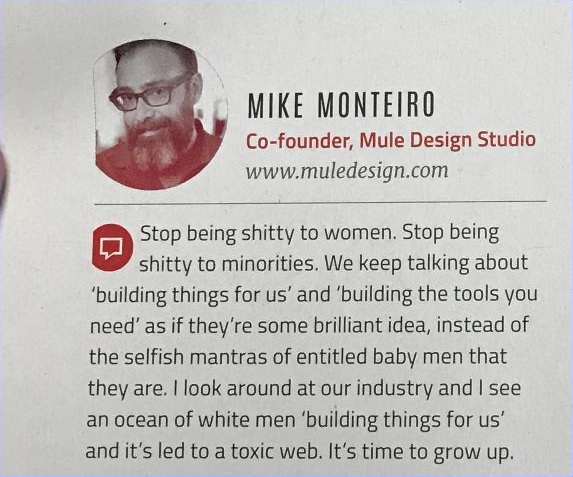End Of The Internet
Smart money got its start in the internet before the collapse began, working on the new frontier in the days antecedent to the time when the herd took over. Since then, the internet has become a popularity contest of highly similar ideas, each claiming to be distinct.
This is consistent with an aging market. When a technology is new, it is rewarded with high-margin results for those who conquer new spaces; as time goes on, it becomes a part of the background hum, with thin margins which encourage a competition death spiral in which all participants emulate one another and thus approximate a mean.
We are now seeing the downfall of the internet as people recognize that the internet corrupts source material by forcing it into this form designated by this dying market, which is the opposite of the “wild west” the internet once promised:
But she found that publishing on the internet often had the unintended and unconscious effect of causing her to cater to the aesthetics of those platforms. “The internet should be a place with no rules, and freedom, but it’s not,†Piñero said. “There is a certain pressure to conform to certain aesthetics.†It was something I had noticed myself. Each social-media platform tends to reward certain behaviors and styles of posting, all in the interest of building fans and followers who are invested in the performance of a persona (maybe even more so than the Geppetto-like person orchestrating it all). Instagram is a place for intimate-seeming photos, Twitter for clever quips and collaborative memes. Facebook demands an unmitigated rawness that can be terrifying at times. With all, the works are often made to fit the platform, not the other way around.
Much as content adapts to its audience, it also adapts to the medium through which it is communicated, which on the centralized internet means relatively few sites like Facebook, Instagram, Twitter and Reddit. As a result, the message is being contorted to not just fit in the medium, but to do what the audience rewards, a sort of consumerism based on imaginary internet points.
After all, these imaginary internet points determine whose content is at the top of these sites and therefore, who gets the benefit in search engines like Google and Bing. That means that social media itself has become a market for popularity such that the content which appeals to the broadest segment of the market dominates, crowding out the voices that do not conform.
This reveals a weakness in demotism itself, as expressed in systems like democracy, capitalism and social popularity. What is most popular is always wrong; what is least popular is a mix of crazy and the hard-to-identify rare moments of sanity. As a result, the herd outweighs sanity and demands that what flatters it become the norm, even if it is insane.
What this means is that the free riders game the system and by appealing to the sympathy of others, corrupt the dialogue with nonsense information:
As CBS2’s Jessica Borg reported, chances are you have probably seen something like this on your Facebook feed – a friend shares a heartbreaking photo of a baby or a teenager with a life-threatening illness.
The post urges you to “like,†“comment,†or “share.â€
…Barrios said such fake posts are part of a scam called, “like-farming.†They can put your computer security at risk, or your personal data if you donate.
Humanity is learning in this century that when we set up “games,” or proxies for purpose measured by method, people take advantage of them, and the result is corruption and opportunism. The internet falls into this difficulty because of its tendency to standardize content to form, which means that the lowest common denominator clickbait wins out.
This shows us the end of the internet: a once decentralized system, which aimed to be decentralized because it knew the fallibility of centralized systems to “gaming” or other attacks, became centralized because the herd came in and demanded the same entertainment they got from their televisions.
As a result, it has now lost truth value, not so much because of the “big corporations” but because the users rapidly destroy anything good in a quest for individual self-importance, attention and profit. This mirrors what happened to Western society as a whole when individualism took over.
Someday we may learn that people are either geared toward some purpose in common, whereby they can cooperate, or they turn into bickering monkeys who tear apart everything good for the benefit of the individual. The internet was once a refuge from this, but now it merely exemplifies it, and has lost utility as a result.
Tags: crowdism, internet, media, social media










